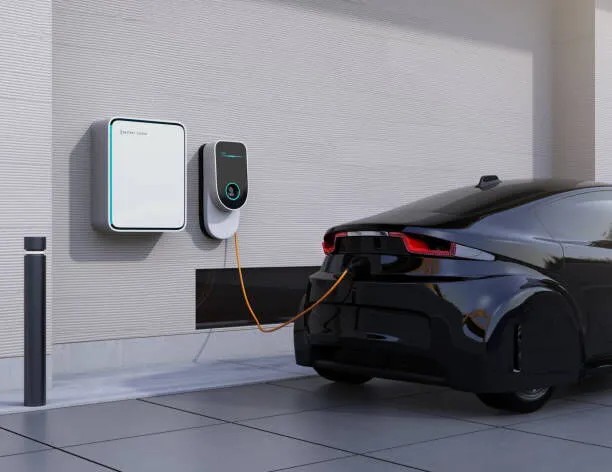


How Often Does My Home EV Charger Need Maintenance?
Introduction
As electric vehicles (EVs) become increasingly popular, maintaining the equipment that supports them—especially home China EV chargers—grows more important. Since around 80–85% of EV charging happens at home, it’s the owner’s responsibility to keep their charger safe, efficient, and reliable.
A well-maintained charger not only extends its lifespan but also protects your EV’s battery and ensures consistent charging performance. So, how often should you service your home EV charger? What signs indicate it needs attention? This article highlights the key warning signs and essential maintenance tips to keep your charging station in top shape year-round.
While home EV chargers generally require minimal upkeep, here are five common signs that professional service may be necessary:
Visible Physical Damage
Cracks, dents, or other damage to your charger’s housing could signal deeper electrical or structural issues. Damaged units may lose weather resistance and risk electrical hazards. Have a certified technician inspect any damage.
Slower Than Usual Charging
If your EV is taking significantly longer to charge than the typical 4 to 10 hours for a Level 2 charger, it could indicate internal electrical problems, worn cables, or voltage irregularities. A licensed electrician or EV specialist can diagnose the cause.
After Severe Weather Events
Outdoor chargers face extreme weather like heat, freezing temperatures, rain, or snow. Even if the unit looks fine, moisture or thermal stress might have caused internal damage. Following harsh weather, scheduling a preventive checkup is wise.
Low Voltage Output
Level 2 chargers run on 240 volts for faster charging. If you notice slow charge times or error messages, a voltage drop due to wiring faults or failing components could be the culprit. A professional can measure and restore proper voltage levels.
Damaged or Exposed Wiring
Charging cables take daily abuse, especially when coiled or used outdoors. Frayed insulation or exposed wires pose serious safety risks—stop using the charger immediately and have the cable repaired or replaced.
Proactive maintenance helps avoid costly repairs and keeps your charger working smoothly:
Keep It Clean
Wipe the charger exterior regularly with a soft, damp cloth and mild soap. Avoid abrasive cleaners or high-pressure sprays that can damage seals or electronics. Always unplug before cleaning.
Protect from Weather
If outdoors, use a weatherproof enclosure or cover that allows ventilation to prevent moisture buildup and overheating. Inspect protective covers for wear.
Watch for Overheating
Signs like burning smells, unusual noises, or excessive heat during charging mean stop charging immediately and call a professional.
Inspect the Cable Frequently
Check cables monthly for cuts, abrasions, or damaged connectors. Avoid tight coils or heavy objects on cables. Replace damaged cables promptly.
Follow Manufacturer Guidelines
Read and adhere to your charger’s user manual for maintenance schedules, cleaning instructions, and firmware updates. Enable app notifications if available.
| Task | Frequency |
|---|---|
| Clean charger exterior | Monthly |
| Inspect charging cable | Monthly |
| Check for visible damage | Quarterly |
| Inspect outdoor enclosures | Semi-annually |
| Professional inspection | Annually or after severe weather |
Smart chargers may offer self-diagnostics to monitor health and usage, aiding in preventive care.
Some issues require expert attention, including:
Burning smells or strange noises
Charger not responding or failing to charge
Frequent error messages or connectivity problems
Noticeable drops in charging speed
Visible internal or electrical damage
Annual professional inspections, especially for outdoor units, can catch small issues before they escalate.
Regular maintenance is key to keeping your home EV charger safe, efficient, and reliable. Simple steps like cleaning, inspecting cables, and watching for warning signs extend your charger’s life and prevent inconvenient downtime.
As EV ownership grows, caring for your charger should become as routine as other vehicle maintenance tasks. When in doubt, don’t hesitate to call a qualified technician—preventive care today saves time, money, and hassle tomorrow.Know more about Google SEO Directory
